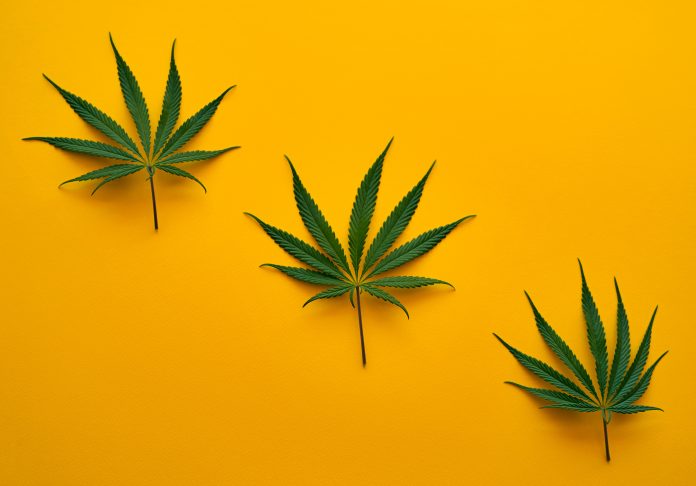Michael Sassano, CEO at SOMAÍ Pharmaceuticals, walks us through how clarity and standards can help the CBD Industry to thrive
The lines between cannabis, cannabidiol, CBD oil, hemp and various other terms have become blurred in the public domain over time. Even within the medical and commercial cannabis community, there needs to be greater discussion regarding the quality of products that are being used for pharmaceutical purposes.
All medical and pharmaceutical cannabis products must conform to the highest form of growing and manufacturing in order to produce a regulated drug. And although CBD derivatives are considered non-psychotropic and safe for human consumption, years of non-regulation have led to widespread poor practice in the cannabis sector.
The positive power of CBD
There is little doubt that CBD oil and products have many positive medicinal attributes due to its synergistic bonding with the endocannabinoid systems’ CB1 and CB2 receptors. And, although there are few proven indications like the GW/Jazz Pharmaceutical’s Epidiolex for epilepsy and other orphan indications, there are currently over 1000 clinical trials underway around the globe.
People have been self-medicating with CBD for a long time and it has become readily available in common stores in the last decade. And in 2019, the Hemp Production and the 2018 Farm Bill in the U.S. codified CBD production and manufacturing in the U.S.
Many have claimed relief for chronic and severe anxiety as well as a plethora of ailments. However, there need to be more studies done to quantify these feelings medically through accepted scientific methods.
Is a lack of regulation hindering the CBD industry
One of the biggest obstacles over the decades has been non-regulation and little oversight of the CBD medicinal industry. Hemp, which is most commonly an industrial plant, is used to make clothes and building materials from the fibers, and it has been around for millennia. Although it is rich in CBD oil, the methodology to grow for human consumption as a medicine has erroneously been ignored since many consider the molecule of CBD as the result.
Furthermore, while extraction generally takes away many impurities, the methods, and inputs into growing any plant for human consumption need to be respected. There is even a higher level of requirements to grow when you transcend from a novel foods CBD to a pharmaceutical-level CBD oil.
Transforming CBD biomass
Complicating things even more, the processing requirements of transforming the CBD biomass into an oil differ dramatically when you move from a CBD oil novel foods registration to a CBD oil pharmaceutical application.
The general rule in today’s world when trying to differentiate the nuances of CBD is to look at the regulatory framework in which the product was grown and manufactured. The industry would benefit from homogenized regulations and quality standards like Good Manufacturing Practice (GMP) standards that would facilitate the global markets, but most importantly consumer protection regarding not only manufacturing quality but also manufacturers’ claims.
Most governments are beyond the old paradigm of restricting CBD uses, but still, there is a battle between the pharmaceutical industry and supplement industry as to the right road. Both have a right to the space, as some people look to use CBD for relieving minor muscle pain, while others require a doctor’s supervision for more severe ailments such as multiple sclerosis. Despite a lack of clinical evidence to some uses, there is plenty of self-administered evidence that a variety of indications can be provided relief by CBD usage.
Treating opioid addiction with CBD
There are studies underway for the usage of cannabinoids like CBD to ween people off opioids, and high dosages of CBD are known to decrease pain. There are also studies with CBD and THC derivatives to help people get off their strong opioid needs also.
Heavy narcotics usage, including opioid abuse, is a clear example in which doctors need to be involved due to their addictive nature as well as the underlying psychological or social issues at the root of the problem. It would be preferable that CBD or even other cannabinoids can be used as a substitute for a drug like an opioid since there is little evidence to support addiction and no known deaths by abuse of CBD or other safe for human consumption cannabinoids. In the absence of clinical data, there are enough examples of self-administered opioid users to support further trials to tackle this devastating addiction.
Remove barriers in the CBD industry
Whatever the use, from pain relief for severe chronic conditions and sport-related injury to alleviation of daily anxiety, quality standards need to be improved across the board, while governments need to remove barriers to people seeking the relief that CBD does or may provide.
Clarity on how the cannabis plant is grown and processed is important to consumer protection, and clear uses and benefits must be properly published because although some uses are benign in nature, some patients have serious needs to help. The industry cannot benefit if claims remain unchecked and quality standards not uniformly applied.











